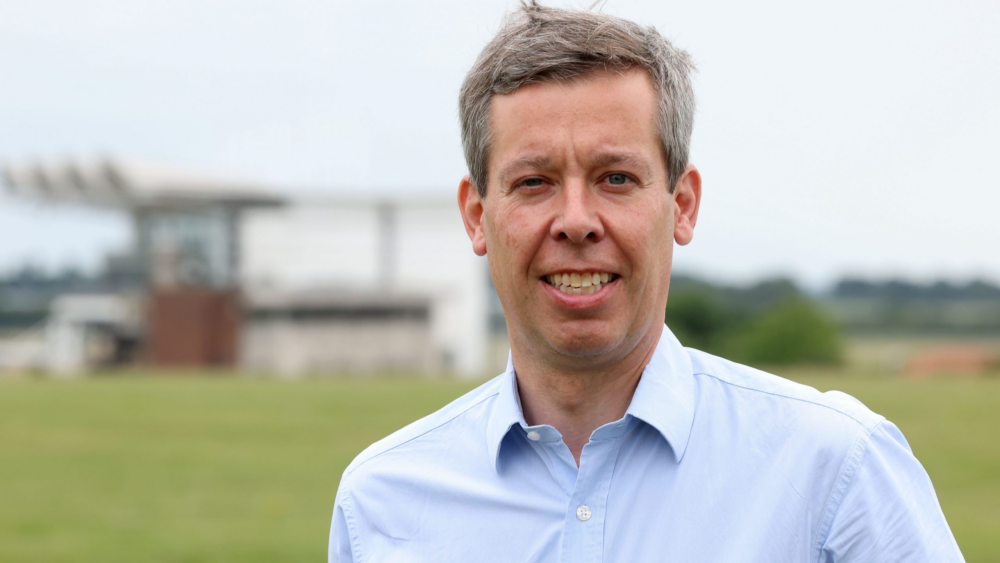BHA Chair Joe Saumarez Smith on wide-ranging and innovative proposals for racing’s future

By Joe Saumarez Smith, Chair of the British Horseracing Authority Board
This week, after months of extensive consultation, the British Horseracing Authority took the first steps on the road to securing a brighter and more prosperous future for our sport.
In a significant development for British racing, on Tuesday the BHA Board voted unanimously for major changes to the sport’s fixtures from 2024 onwards.
While the scope of these changes is extensive, I am sure sections of the industry will think we have not been nearly radical enough; others will think we have gone too far, too fast.
However, I think we have all been pleasantly surprised by how much goodwill and willingness there has been to embrace change. The belief that no one would be willing to take short-term pain for potential long-term gain has been disproved. Those who said the recurring theme would be ‘radical change as long as it doesn’t happen to me’ have largely been proved wrong.
The wide-ranging and innovative proposals came from a cross-industry group of stakeholders who sit on the Commercial Committee and make recommendations to the BHA Board. Unsurprisingly, not all the decisions were unanimously supported by every stakeholder but all of them had a strong majority in favour.
What was agreed on Tuesday is just the start of putting in place strategic changes for the long-term benefit of racing. The Future Racing Product is the first of the six areas of focus that the industry has agreed are high priorities. The owner experience, fan engagement, overseas investment, improving the betting product and product presentation, development and broadcast are all being worked on but the urgent nature of deciding the 2024 fixtures meant this was where we focussed first.
It is important to understand that the changes agreed by the BHA Board will be implemented and tested for an initial two-year period. From the beginning of this process we have encouraged everyone involved to come up with ideas for reform and then to test whether they work. It is inevitable that some will work better than others, ideas will need tinkering with and sharpening and some may not work at all. But we are trying something different with the aim of building proper evidence to show whether we should continue with the changes or try something else.
Of course, this is just the start of an iterative process for racing’s future product. Each annual cycle will see new proposals for changes to fixtures for the Commercial Committee to consider. We cannot afford to stand still in a rapidly changing consumer environment – you only need to look at the challenges facing cricket, rugby and golf to see that racing is not alone in needing to find new ways to grow.
At the heart of growing the sport is using data properly. For the first time, the BHA’s Project Team has had access to data from betting companies, the Levy Board and racecourses that gives a proper picture of how revenues flow into the sport. For too long, racing has made decisions based on sentiment or partial information and we are now starting to make genuinely data-driven, evidence-based decisions about what is best for the sport.
In some sections of the industry a narrative has evolved that the BHA is putting betting revenues above racecourse attendance in its priorities for the sport. This is not the case. We clearly need to grow both the number of people who bet on the sport and those who go racing and engage properly with the horses and the action on the track. They are not mutually exclusive. But we do also need to recognise that the pattern of when people want to engage with racing has changed – we cannot afford to offer customers an analogue product in a digital age.
I must take this opportunity to thank everyone who has been involved in the process that led us to Tuesday’s Board decision. When last September we started building industry consensus for radical change to the sport, there were some dire warnings about the impossibility of getting everyone in racing to work together for the common good.
That these warnings have proved to be without foundation is testament to the tireless efforts of all those dedicated to working for the benefit of the whole sport. I would particularly like to thank David Jones, who has chaired the Commercial Committee, for his extraordinary diplomatic skills and patience.
This is a vital time for racing. Collectively we are working together better than we have for many years, thinking about the long-term health of the sport and showing a willingness to embrace change. It is not going to be easy, particularly given the precarious financial situations of so many people involved in the sport, but I remain optimistic that racing is making the right decisions to sustain itself for many years to come.
